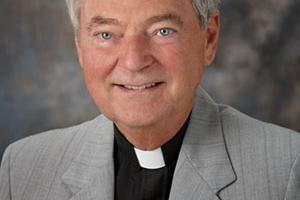
By Rev. Jim Fruehling, Ph.D.
These are familiar words, words that we read in all three of the Synoptic Gospels, each instance occurring immediately after Jesus teaches the disciples that He, the Son of Man, must suffer many things:
“If any want to become my followers, let them deny themselves and take up their cross and follow me” (Mark 8:34, NRSV).
It all sounds so familiar, but what does self-denial look like, for us?
At intervals in church history, selfdenial was taken to the point of self-injury; people would undertake severe, almost life-threatening fasts, or engage in behaviors that caused injury, in order to subdue and deny themselves bodily.
But the word that is translated as “deny” yourself can also be translated as “disregard” yourself, or, as my mother said on occasion to me, “Oh, get over yourself!”
A note in the New International Version of these passages puts it a bit more gently: to deny yourself is, “to cease to make the self the object of one’s life and actions.” This is supremely counter-cultural in a time of self-absorption, braggadocio and multiple “selfies” posted everywhere. (Of course, it’s not the technology or the medium; it’s the people who are using it.)
Michael Rogness, who is teaching at the Luther Seminary in St. Paul, Minnesota, writes that to deny oneself means to keep one’s priorities in harmony with what Jesus told us in the two great commandments— love God, and love your neighbor. And yes, the rest of that text says, love your neighbor as yourself, an injunction that goes all the way back to Leviticus.
So, self-denial and self-disregarding are matters of—perspective.
Karoline Lewis also teaches at Luther Seminary, and she observes, “We’re not just denying ourselves, we’re denying the selves that refuse community; we’re denying the self that thinks it can survive on its own, the self that rejects the deep need of humanity—belonging.”
Rejoicing Spirits moves forward in this very context—loving God; loving our neighbors—all our neighbors—as ourselves; and offering a community where all can belong.
When Jesus is teaching about disregarding ourselves, He also continues to add that we are to take up our cross—all that it will cost us to do what Jesus told us to do—and follow Him.
And the words “take up” can also be translated as “lift.” So, we join in affirming the words to the hymn so many of us have sung:
Lift high the Cross,
The love of Christ proclaim
Till all the world adore
His sacred name.
Blessings to all of you, and to your communities!



